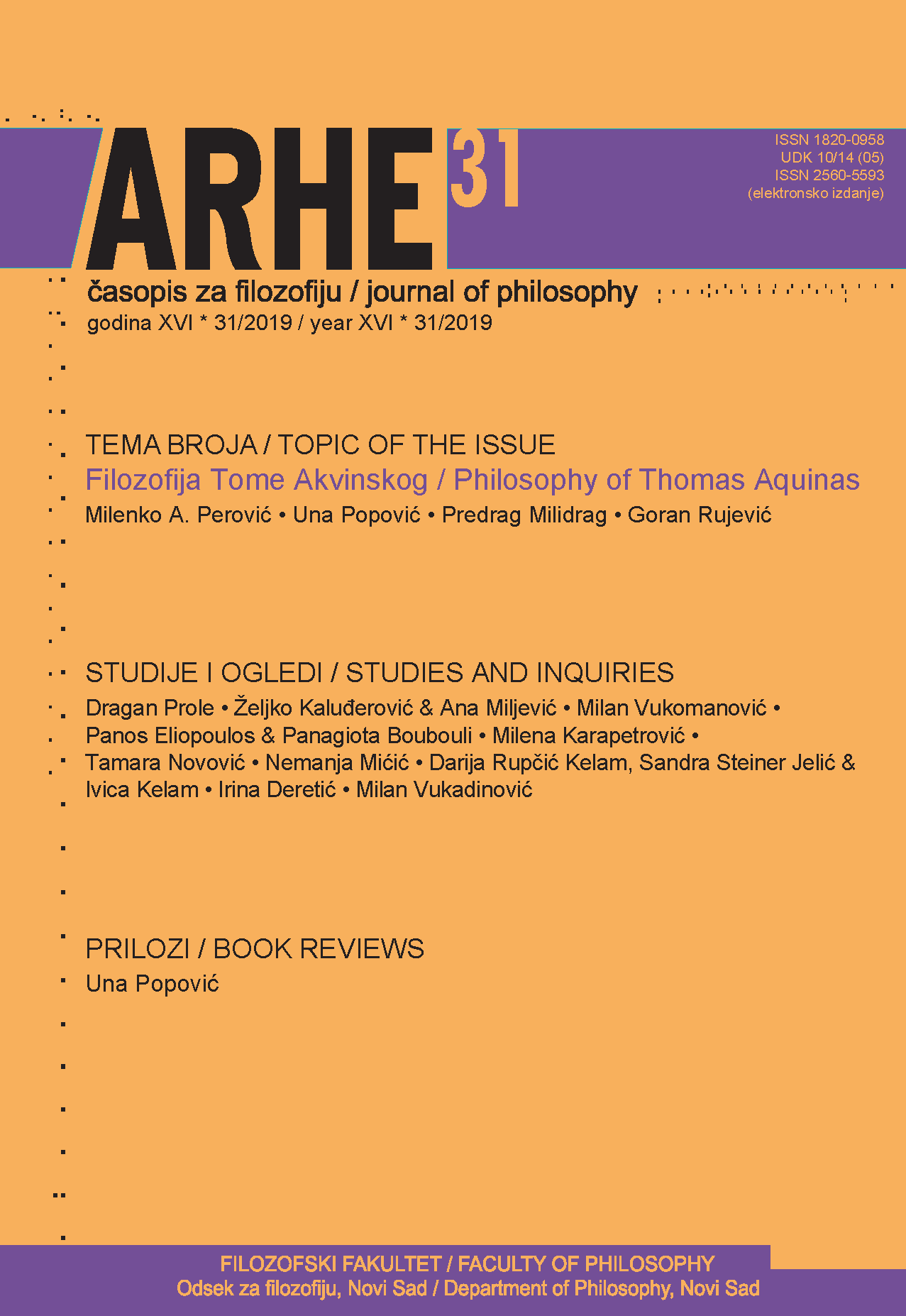KIERKEGAARD ON THE POLITICAL FORM OF DESPAIR
Main Article Content
Abstract
In our times, political despair seems to take over other political perspectives as regards the life of the citizen, his relationship with the State, his connection with his fellow citizens, his participation in the political process etc, but most of all it appears as a latent political factor that passes through all stages of the political life. For Kierkegaard, despair is a state of being, not just a temporary sentiment or resentment for life. In his theory, despair is a situation which coincides with the loss of our own self; and there is a political self to lose too. It regards a condition in which one remains attached to a wrong conception of his self but also of others. For some of the scholarship, this brings the implications of a coherent bond between human and political ontology, in Kierkegaard’s philosophy. Under this prism, one of the deforming mirrors of political reality and thus a partial culprit for the loss of a realistic conception of the political phenomena is the mass media. The Danish philosopher turns against the Press of his time, in order to defend subjectivity as a major element in the political process, closely related with truth and individuality. Politics cannot be authentic if they do not stem from a persistent comprehension of existential despair. The political is always part of the existential; that is a major affirmation in Kierkegaard’s thought.
Article Details
References
Cappelan, N. J. et al., Kierkegaard’s revisited: Proceedings from the conference, Germany: Walter de Gruyter, 1997.
Champagne, P., H kataskevi ths koinhs gnwmis [Faire l'opinion: le nouveau jeu politique], Athens: Patakis Publications, 2004.
Dahlstrom, D., “Freedom through Despair: Kierkegaard’s Phenomenological Analysis”, in: Hanson, J., (ed.), 2010, Kierkegaard as Phenomenologist: an experiment, Illinois: Northwestern University Press.
Elrod, J. W., Kierkegaard on Self and Society Kierkegaardiana, 11, 1980.
Grunthaler, A. J., Kierkegaard’s Concept of Despair, www. Sophiaomni.org.
Kierkegaard, S., “The Present Age: A Literary Review”, in: Bretall, R., (ed.), A Kierkegaard Anthology, U.S.A: Princeton University Press, 1846.
Kierkegaard, S., Three Discourses on Imagined Occasions, Copenhagen, 1847.
Kierkegaard, S., Kierkegaard’s Journals and Papers, Volume 4, Hong V. & Hong, E. H., (eds.), Bloomington and London: Indiana University Press, 1975.
Kierkegaard, S., The Sickness Unto Death: A Christian Psychological Exposition For Upbuilding And Awakening, (v. 19), Hong V. & Hong, E. H., (eds.), U.S.A: Princeton University Press, 1983.
Kierkegaard, S., Kierkegaard's Writings, XVI: Works of Love, Hong V. & Hong, E. H., (eds.), U.S.A: Princeton University Press, 1995.
Kierkegaard, S., The Single Individual: Two Notes Concerning My Work as an Author, 1998b, 110/XIII 597.
King, P. & Smith, G. M., Friendship in Politics, Amity in and between States, London and New York: Routledge, 2007.
Marasco, R., The highway of despair: Critical Theory after Hegel, New York: Columbia University Press, 2015.
Sirvent, R. & Morgan, S., Kierkegaard and Political Theology, Eugene, Oregon: Pickwick Publications, 2018.
Smith, G. M., Kierkegaard from the point of view of the political, History of European Ideas 31, University of Lancaster, UK: Elsevier Ltd., 2005.
Stewart, J. B., Kierkegaard’s Influence on Social- Political Thought, Great Britain: Ashgate Publishing, 2011.
Stocker, B., Kierkegaard on Politics, Istanbul Technical University, Turkey: Macmillan, 2014.
Welz, C., Kierkegaard and Existentialism, Great Britain: Mpg Books Ltd, 2011.
